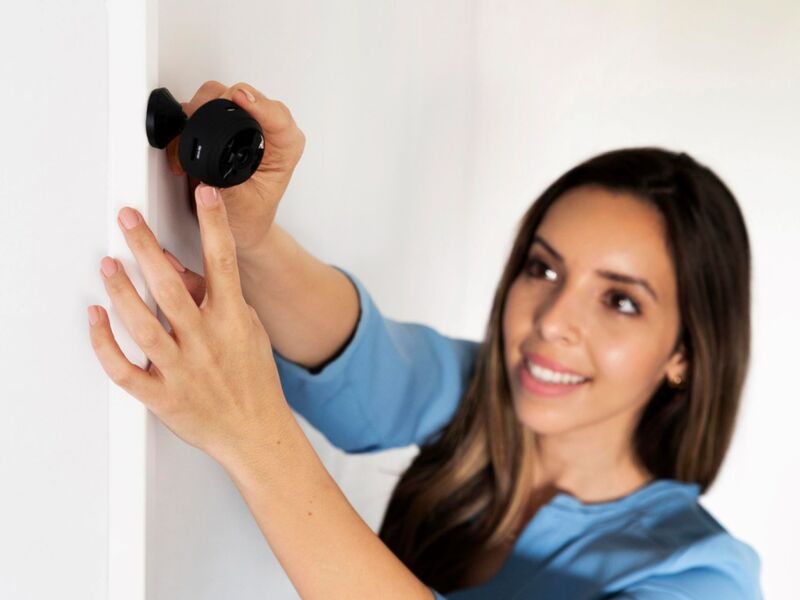Professional CCTV Installation
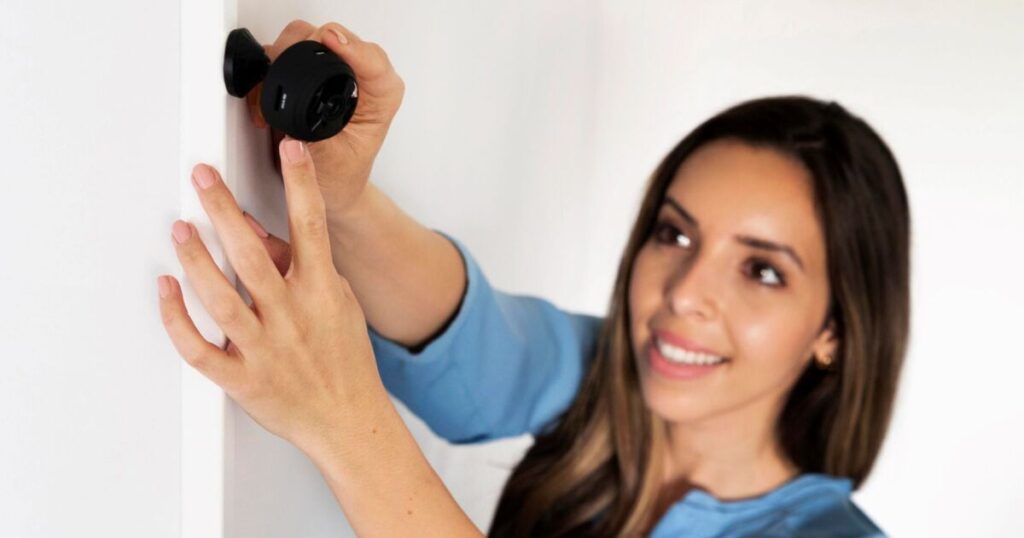
In an era where security is a top priority, home CCTV installation has emerged as a powerful tool to ensure the safety of our living spaces. In this blog, we will get into the world of CCTV cameras for home systems, exploring their various aspects and highlighting the importance of professional installation.
What is CCTV?
CCTV stands for Closed-Circuit Television, which refers to a system of surveillance cameras, video recorders, and monitors used to monitor and record activities in a specific area.
Unlike broadcast television, which is open to the public, CCTV operates on a closed circuit, meaning the video footage is intended for private use and is limited to a specific set of monitors or devices.
Basic Components of a CCTV Installation System:
- Cameras: These are the eyes of the system. CCTV installation cameras capture video footage of the area under surveillance. There are various types of cameras, each designed for specific purposes, such as dome cameras for indoor monitoring and bullet cameras for outdoor surveillance.
- Video Recorders: Video recorders capture and store the footage from the cameras. There are two main types: Digital Video Recorders (DVRs) and Network Video Recorders (NVRs). DVRs process analogue camera signals, while NVRs work with IP (Internet Protocol) cameras that transmit data over a network.
- Monitors: Monitors display live or recorded video footage from the cameras. These can be in control rooms, security offices, or other central locations where security personnel can monitor the area.
- Cables and Wiring: The cameras and recorders are connected using cables to transmit video and power signals. Different types of cables are used, including coaxial cables for analogue systems and Ethernet cables for IP systems.
- Power Supply: CCTV cameras require power to operate. Power sources can include traditional electrical outlets or Power over Ethernet (PoE) systems that deliver power through the same Ethernet cable used for data transmission.
- Storage Devices: Recorded video footage needs to be stored for future reference. This is typically done using hard drives or network storage devices, depending on the type of video recorder used.
- Accessories: These include items like mounts, brackets, and housings for cameras, as well as connectors and adapters for setting up the system.
- Remote Access: Many modern CCTV systems allow for remote access, meaning you can view live or recorded footage from your cameras using computers, smartphones, or other devices connected to the internet.
- Software and Apps: CCTV installation systems often come with software or apps that allow you to manage and control your cameras and recordings. These tools can offer features like motion detection, video playback, and configuration settings.
Uses of CCTV in Homes:
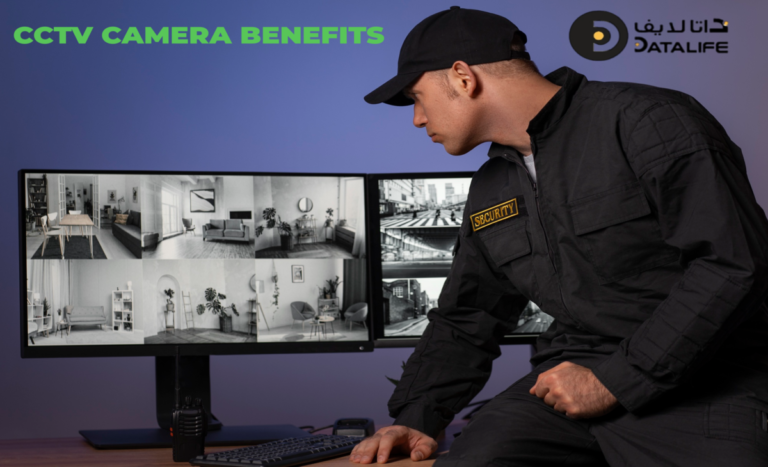
- Preventing Unwanted Guests: Think of CCTV cameras as the watchful guardians of your home. Their presence alone is often enough to discourage potential wrongdoers, like burglars and thieves, from targeting your property.
- Ensuring Loved Ones’ Safety: Beyond security, CCTV cameras offer an extended layer of care. Whether it’s keeping a protective eye on kids at play, ensuring elderly family members are okay, or overseeing those with special needs, these cameras ensure the well-being of your loved ones.
- Safeguarding Your Assets: Your home is filled with memories and valuable belongings. CCTV cameras function as custodians, standing guard against unauthorized access and theft attempts, offering you peace of mind.
- Documenting Incidents: Should unfortunate events occur; CCTV footage serves as an unbiased observer. It provides essential evidence in case of any incidents, aiding law enforcement in identifying culprits and resolving issues.
- A Sense of Assurance: With CCTV cameras on duty, you can enjoy a heightened sense of security. The reassurance that your home is under vigilant watch, even in your absence, is a comforting feeling.
Selecting the right CCTV cameras involves a few key considerations:
- Space and Placement: Assess the size and layout of your home. Determine the strategic locations for camera installation to maximize coverage.
- Security Concerns: Identify your primary security concerns. Whether it’s unauthorized entry, damage, or other potential threats, modify your camera selection to address these issues.
- Budget Allocation: Define your budget for CCTV installation. This will guide your choice of cameras and additional features.
- Desired Features: Consider features that align with your needs, such as night vision capability, motion detection, or remote access.
Remember, installing the cameras correctly and maintaining them diligently ensures optimal performance, making your investment in home security truly effective.
Types of Home CCTV Cameras:
Home CCTV installation systems come in a variety of camera types, each designed to cater to specific security needs. From discreet dome cameras that blend easily into your home decor to powerful bullet cameras that offer long-range monitoring, there’s a camera type to suit every corner of your property.
Pan-tilt-zoom (PTZ) cameras provide complete coverage of large areas, while thermal cameras detect heat signatures, ensuring a thorough view even in challenging lighting conditions.
Here are some common types of CCTV cameras available today:
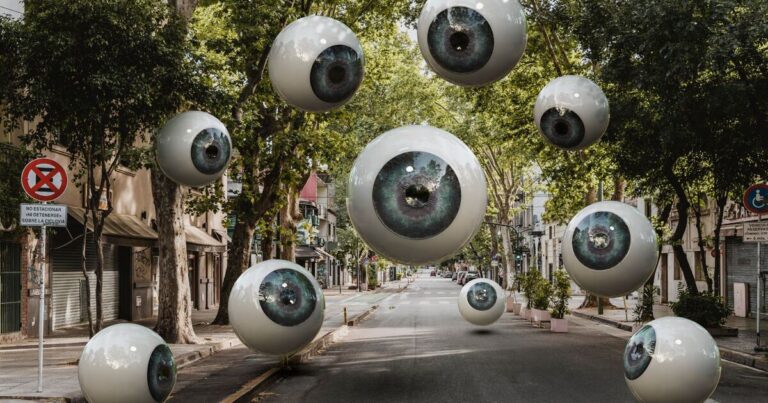
- Dome Cameras: These cameras are housed in a dome-shaped casing and are often used for indoor security. They offer a discreet and unobtrusive appearance, making them suitable for various settings.
- Bullet Cameras: These cameras resemble a bullet casing or a cylinder. They are designed for outdoor use and are known for their long-range and focused view. Bullet cameras are often used to monitor specific areas, such as entrances or driveways.
- PTZ Cameras (Pan-Tilt-Zoom): PTZ cameras can be remotely controlled to pan, tilt, and zoom, providing a broad view of a large area. They are commonly used in areas that require constant monitoring of different angles.
- IP Cameras: These cameras transmit data over an internet protocol network. They offer high-resolution images and can be accessed remotely through smartphones or computers.
- Wireless Cameras: Wireless cameras connect to the surveillance system through Wi-Fi, eliminating the need for bulky cables. They are flexible in terms of installation and can be placed in various locations.
- CCTV Camera with Night Vision: These cameras use infrared technology to capture clear images even in low-light or no-light conditions. They are essential for round-the-clock surveillance.
- Wide Dynamic Range (WDR) Cameras: WDR cameras can handle challenging lighting conditions, such as bright backlighting or shadows. They ensure that both dark and bright areas are visible in the same frame.
- 360-Degree Cameras: Also known as fisheye cameras, these cameras offer a panoramic view of an entire area without blind spots. They are useful for monitoring large open spaces.
- License Plate Recognition (LPR) Cameras: LPR cameras are specialized cameras designed to capture license plate numbers of vehicles. They are commonly used for parking lots, toll booths, and access control points.
- Covert Cameras: These cameras are designed to be discreet and hidden within everyday objects, such as smoke detectors or clocks. They are often used for covert surveillance.
- Thermal Cameras: Thermal cameras use heat signatures to detect movement and objects. They are effective for areas with poor lighting conditions or where traditional cameras may not work well.
- ANPR Cameras (Automatic Number Plate Recognition): ANPR cameras capture license plate numbers and use optical character recognition to convert them into text. They are used for applications like toll collection and traffic monitoring.
These are just a few examples of the diverse range of CCTV installation cameras available. The choice of camera type depends on factors such as the intended location, lighting conditions, monitoring requirements, and specific goals of the surveillance system.
Benefits of Professional CCTV Installation:
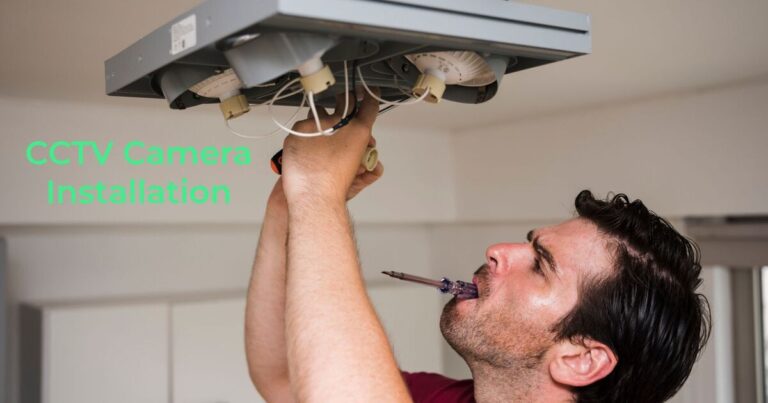
While DIY CCTV installation might seem tempting, opting for professional CCTV installation brings a lot of benefits. Expert installers possess the knowledge to strategically place cameras for optimal coverage, eliminating blind spots and maximizing surveillance effectiveness. They modify security solutions to your home’s layout, ensuring every inch is safeguarded.
Moreover, professional installers work with high-quality equipment that can withstand various weather conditions, guaranteeing uninterrupted surveillance year-round. Their expertise extends to continuous integration with other security technologies, creating an organized security infrastructure that’s easy to manage.
The world of CCTV installation systems for homes offers a holistic approach to security, one that goes beyond mere surveillance. By choosing professional installation, you’re not just enhancing your home’s safety; you’re embracing a comprehensive security solution that brings peace of mind to you and your loved ones.
So, as you get on the journey to fortify your home, remember that expert home CCTV installation is the key to unlocking a safer and more secure shelter.

